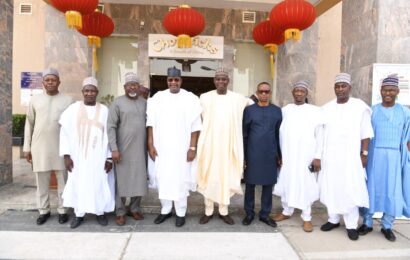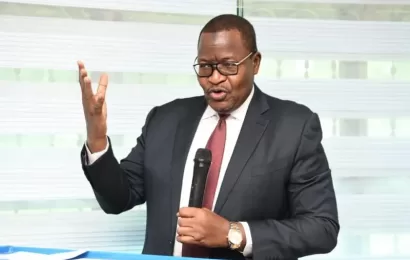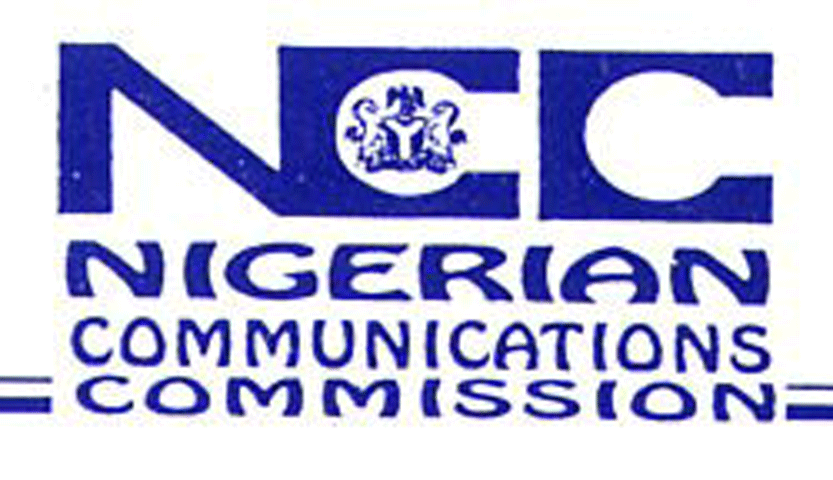By Moses Ebosele, ebosele@hotmail.com —

For the Nigerian Communications Commission (NCC), the annual capacity building workshop for judges is key to the development and growth of the telecommunications sector.
Conceptualized 17 year ago, the objective according to NCC is to among others equip judges on how to navigate legal issues presented for adjudication
Specifically, the annual programme identifies topical and emerging area of telecommunications with a view to sensitize judges on trends in the telecommunications industry.
Indeed, to further protect telecoms infrastructure in the country, NCC has pledged to strengthen collaboration with judicial institutions in Nigeria.
The Executive Vice Chairman (EVC) of the Commission, Prof. Umar Garba Danbatta, gave the assurance during a courtesy visit by a delegation of the Kano State Judiciary to the chief telecom regulator explained that while the Commission is doing everything within its regulatory mandate to enforce compliance among licensees as well as collaborating with stakeholders to protect telecom infrastructure, some individuals indulge in willful damage of telecom infrastructure, vandalism, telecoms facility theft, and fibre cuts, among other crimes.
According to Danbatta, these criminal acts conspire to degrade the quality of service (QoS) in the country, and since the NCC has no prosecutorial power, the need to strengthen collaboration with the judicial arm of the government at all levels has become expedient.
Speaking in a similar vein at the 2021 capacity building workshop recently, Prof Danbatta explained that it’s necessary for judges on legal issues in telecommunications to be prepared for the imminent increase in litigation of conflicts as to ownership of online content and materials.
Explaining further at the event organized by the NCC in collaboration with the National Judicial Institute (NJI), Danbatta said the increased reliance on telecommunications, as well as the growth experienced in the sector has introduced some issues of legal connotation.
He said: “The Covid-19 pandemic, more than any event in the history of the human race, has highlighted the important role that telecommunications play in connecting businesses, governments and the society at large.
“As a result of the economic and social disruptions caused by the pandemic, more people across the globe have become increasingly reliant on telecommunications infrastructure for information, meeting social distancing restrictions and working from home.”
According to Danbatta, one of the most dynamic developments related to the digital economy has been the rise of social network sites which has set the stage for unprecedented platforms of social interactions, dialogue, exchange and collaboration.
He said, “These platforms have opened up multiple avenues for entrepreneurship, business connectivity and engineered several activities that support ease of doing business in Nigeria. Clearly access to the internet and the platforms have bridged the gap between entrepreneurs in other climes with young Nigerian business owners.”
Danbatta, however, said the forum aimed to build the capacity of distinguished Judges with practical insights on these emerging issues in the field of telecommunications, and with theme ‘Adjudicating in a fast-paced World of Technology and Digital Presence’.
In a chat with City BusinessNews (www.citybusinessnews.com), at the weekend, an economist, Matthew R, Otoide, advised NCC to expand the scope of the workshop.
He also used the opportunity to commend NCC for the initiative, adding that ’Capacity building is crucial to the development of any society“.
In his address at the 2021 workshop, the Chief Justice of Nigeria and Chairman, Board of Governors of the National Judicial Institute, Justice Tanko Muhammad said the workshop essentially availed the participants an opportunity to rub minds on current challenges confronting the telecom sector.
According to him, the telecommunications sector had experienced a significant increase in the number of service providers which made the sector more competitive and prone to abuse, some of the risks to consumers had resulted in a number of disputes and challenges which invariably ended up in courts for adjudication.
He said thegrowing need for consumer protection in this sector was increasingly becoming complex for courts and the regulator in the converged setting of today, “which includes issues related to e-transactions such as e-commerce, epayment, and e-banking, all creating a major challenge in the sector.”
Represented by Justice John Okoro, the CJN expressed belief that the forum would further equip Judicial Officers with the legal and technical skills required for adjudicating disputes in those special area of the law, and ito keep them abreast with global best practices.
He commended the NCC for rising up to the occasion in its bid to protect consumers from unfair practices by service providers, adding that the Judiciary on its part will not rest on its oars, as it will continue to interpret the relevant laws in line with extant provisions of the law.
Addressing delegation of the Kano State Judiciary, Danbatta said: “NCC does not have prosecutorial power in criminal acts committed by the citizens and licensees which are inimical to the progress of the sector; and we appreciate the ways and manners such criminal cases are being dispensed by the judiciary. This is a testimony to the kind cooperation NCC has been enjoying from the judiciary,” he observed.
According to Danbatta, the Commission will never fold its arms while unscrupulous citizens cause havoc on telecommunications infrastructure since that affects the quality-of-service innocent citizens enjoy.
“Therein lies the importance of the judiciary in the work that we have been assigned by the government to do. We very much appreciate this cooperation with the judiciary and we are committed to ensure that the cooperation grows stronger and stronger going forward,” he said.
According to him, the recently-concluded NCC Judges Workshop held in Abuja, was a very important initiative of the Commission to continuously collaborate with members of the judicial arm of government through updating them with the trends and regulatory dynamism of the sector with a view to improving their knowledge for effective dispensation of justice.
Earlier in his address, the Chief Registrar of Kano State High Court of Justice, Abdullahi Ado Bayero, who led the delegation, commended the efforts of Prof. Danbatta and NCC in fast-tracking digital transformation of governance and other sectors of the economy, adding that Judiciary, as a whole, has recognised the necessity and inevitability of digital justice system as well as full integration of ICT-based court system in the administration of justice.
He said this position is well entrenched in the National Judiciary Information Technology Policy (NJITP), 2021 and is consistent with the NCC’s objective and strategic intervention to advance ICT knowledge and training for various public institutions in Nigeria.
“It is in line with the above that the Kano State Judiciary is determined to explore all necessary avenues and opportunities to integrate ICT-based court systems as well as digitised justice delivery systems for efficient and effective administration of justice in the state and we request NCC’s intervention in this regard,”






